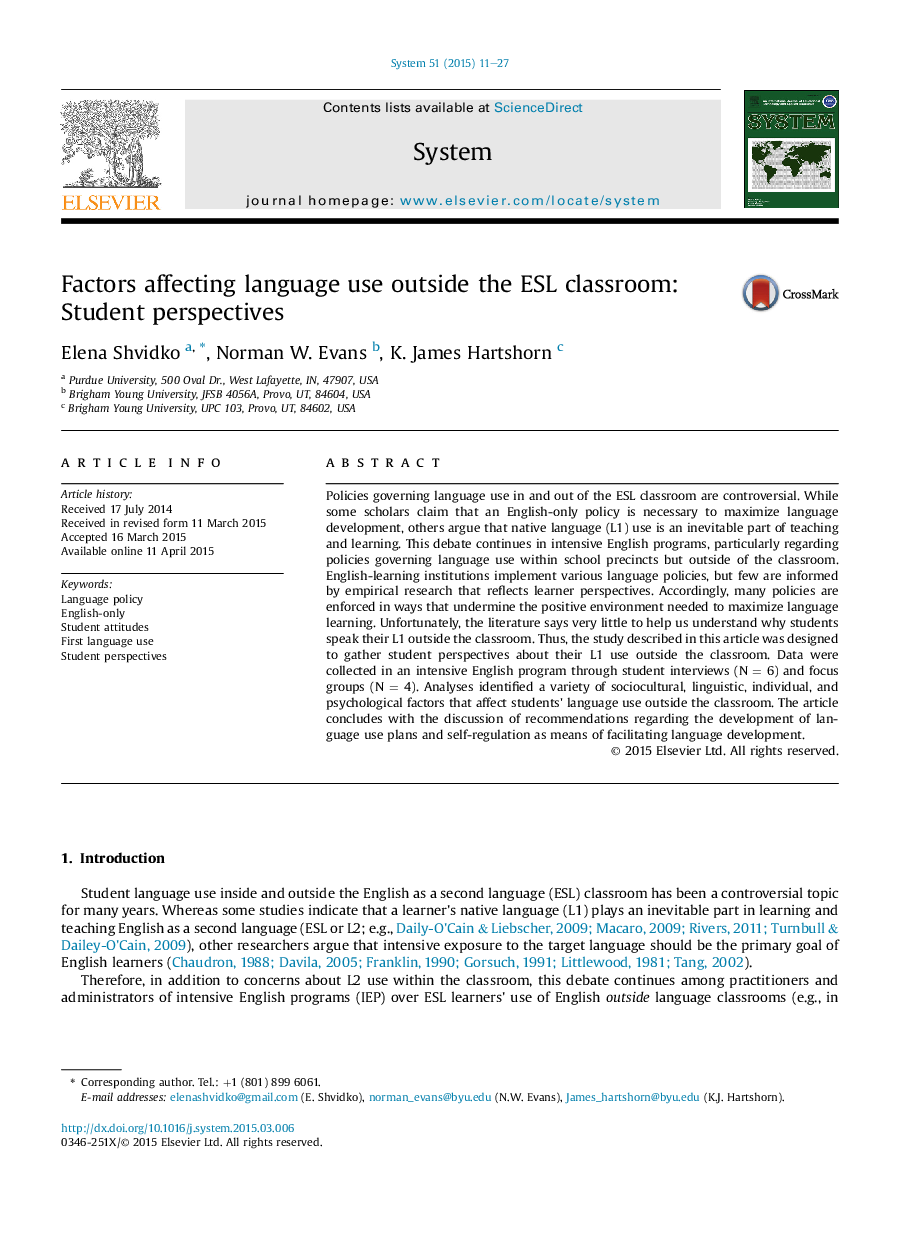| Article ID | Journal | Published Year | Pages | File Type |
|---|---|---|---|---|
| 373048 | System | 2015 | 17 Pages |
•Data were collected in an IEP through interviews and focus groups.•We investigate student perspectives about their use of L1 outside the classroom.•A variety of factors influence learners' use of L1 outside the classroom.•The data suggest the need to carefully consider student voices in language planning.•Language planning based on student input is a better alternative than strict policy.
Policies governing language use in and out of the ESL classroom are controversial. While some scholars claim that an English-only policy is necessary to maximize language development, others argue that native language (L1) use is an inevitable part of teaching and learning. This debate continues in intensive English programs, particularly regarding policies governing language use within school precincts but outside of the classroom. English-learning institutions implement various language policies, but few are informed by empirical research that reflects learner perspectives. Accordingly, many policies are enforced in ways that undermine the positive environment needed to maximize language learning. Unfortunately, the literature says very little to help us understand why students speak their L1 outside the classroom. Thus, the study described in this article was designed to gather student perspectives about their L1 use outside the classroom. Data were collected in an intensive English program through student interviews (N = 6) and focus groups (N = 4). Analyses identified a variety of sociocultural, linguistic, individual, and psychological factors that affect students' language use outside the classroom. The article concludes with the discussion of recommendations regarding the development of language use plans and self-regulation as means of facilitating language development.
